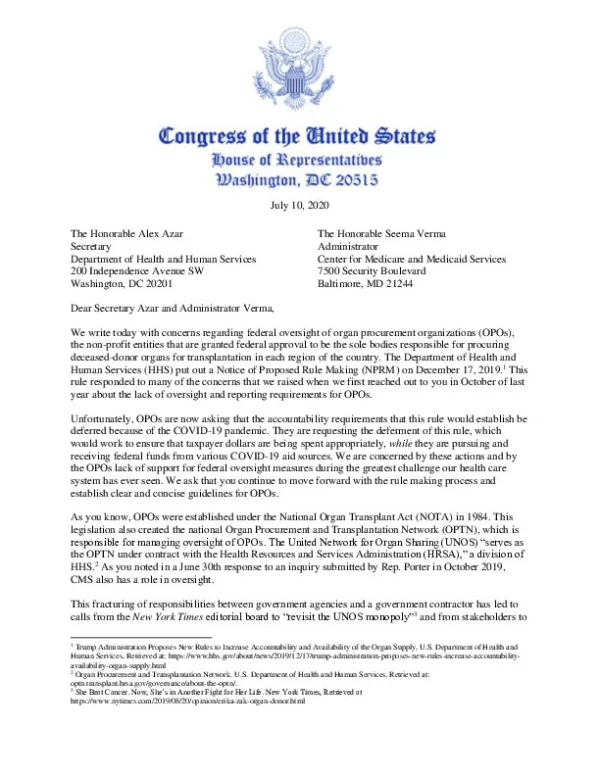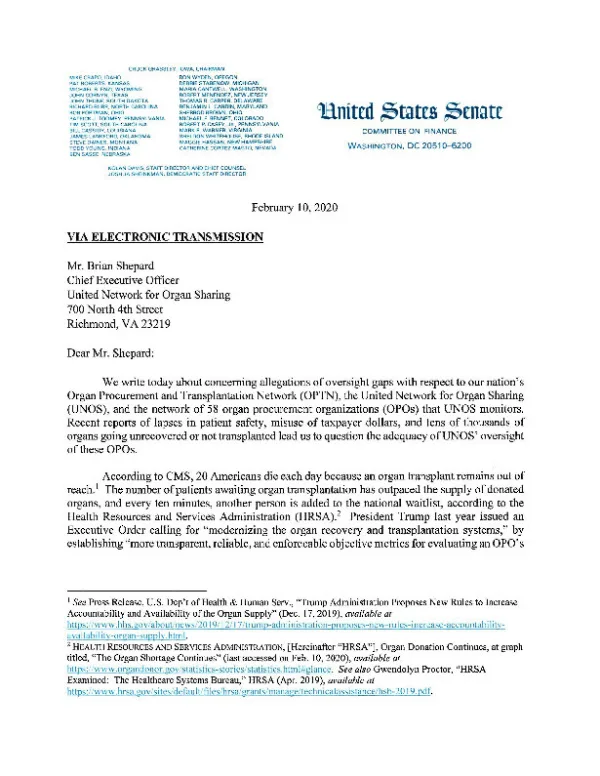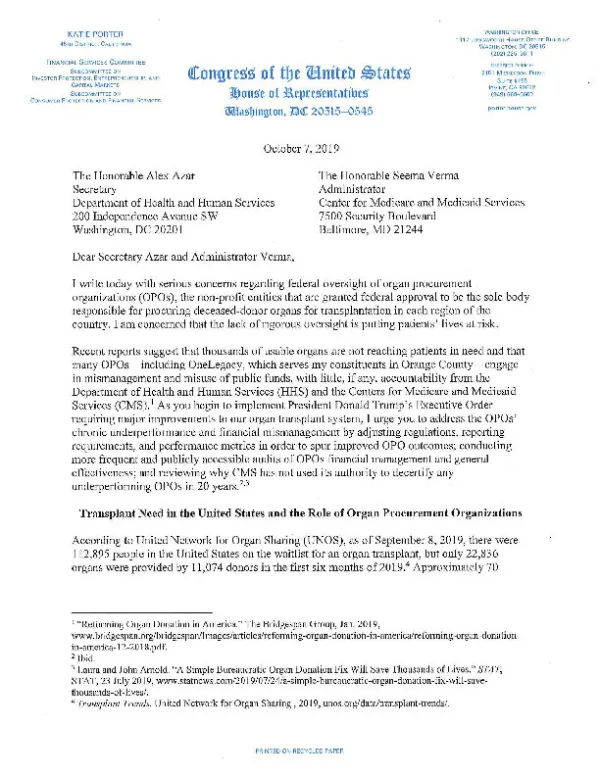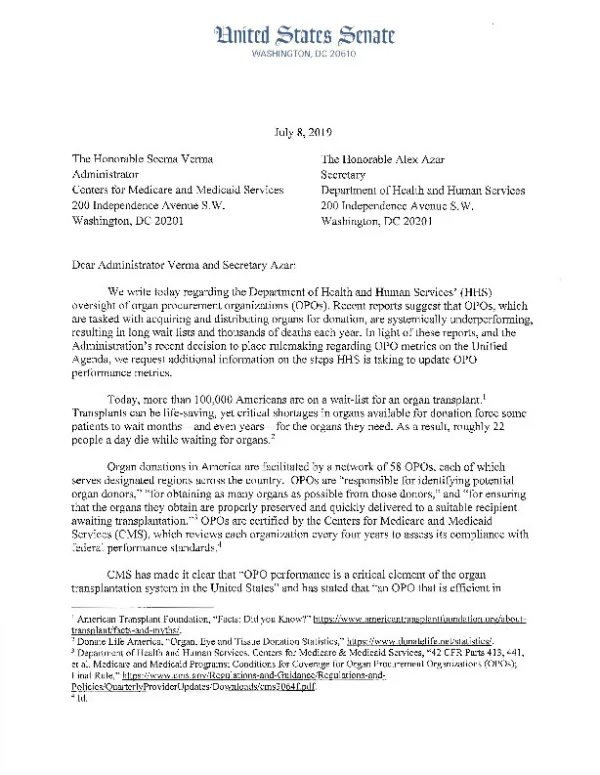Organ Donation

To help more patients access lifesaving organ transplants, the Department of Health and Human Services must hold its organ donation contractors accountable.
Roughly 110,000 Americans are currently on the waiting list for a lifesaving organ, which also contributes to $36 billion annually in Medicare costs for patients on dialysis. The problem lies with a lack of accountability in the network of government monopoly contractors charged with leading organ recoveries, called organ procurement organizations (OPOs), and an abdication of responsibility from HHS’s oversight contractor, the United Network for Organ Sharing (UNOS). The failings of the OPO industry also fall disproportionately on patients of color, making OPO reform a key health equity issue. In November 2020, the Department of Health and Human Services (HHS) finalized new accountability measures for OPOs, projected to save an additional 7,300 lives every year, and we urge the Biden-Harris Administration to implement these reforms as soon as possible.
We aim to save more lives through organ donation by holding OPOs more accountable. We focus on opportunities to drive systemic changes for the OPO industry, including: objective evaluation of OPO performance; more transparency into OPO finances as well as reforms to the OPO reimbursement structure; introduction of competition into the OPO industry as well as for their oversight contractor, the United Network for Organ Sharing (UNOS); and centralizing government oversight and policymaking related to organ donation into a single Office of Organ Policy. We also support ongoing Congressional investigations from both the Senate Finance Committee and the House Committee on Oversight and Reform into OPOs and UNOS into performance failures; conflicts of interest; fraud, waste and abuse; and anti-patient lobbying.

Image: A kidney transplant surgery is performed at MedStar Georgetown University Hospital in Washington D.C., Tuesday, June 28, 2016. (Molly Riley/Associated Press file)
In the News
Stories
See all











